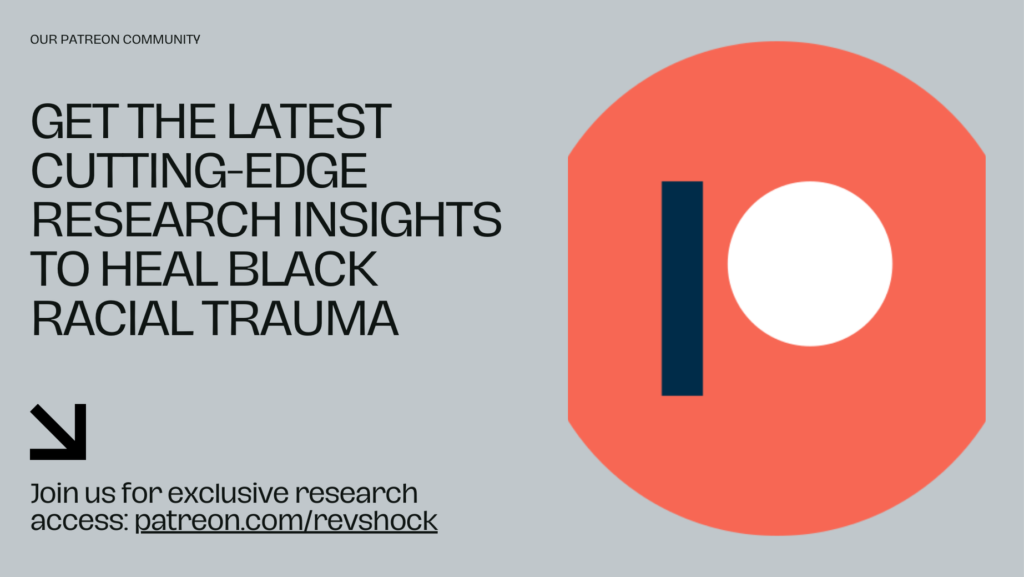
Powered By BlackTraumaGPT.com
Researched and Curated By Rev. Dr. Philippe SHOCK Matthews – https://solo.to/revshock | https://linktr.ee/revshock (Black Trauma and Mental Health Specialist | Prompt Eng | GPT Dev | Research Scientist | Africana Phenomenologist | Black Mental Health Podcast Host | FREE Webinar)
Introduction
In a powerful and enlightening conversation on The Black Trauma Podcast, host Rev. Dr. Philippe SHOCK Matthews welcomes back Dante King, author of “Diagnosing Whiteness,” for a profound discussion on the historical traumas that have shaped the Black experience in America. Together, they explore the deep psychological and societal impacts of America’s legal, moral, and economic institutions on Black women and the Black community as a whole.
The Foundations of Systemic Oppression
The conversation begins with a sobering examination of America’s legal history, highlighting the codified brutality of early American laws. As Rev. Matthews points out, examining historical laws reveals the systematic dehumanization of Black people, particularly through differential punishments for the same crimes:
“Kentucky, 1802 Code: death penalty for rape of white women by a slave and term of years for rape by a white man. Virginia Code, 1819 and 1823: Death penalty for rape or attempted rape of a white woman by a slave, black, or mulatto, and term of 10 to 21 years for rape by a white man.”
These laws demonstrate how American institutions normalized violence against Black bodies while simultaneously protecting whiteness. King emphasizes that this systemic approach to controlling Black lives wasn’t merely about physical dominance but represented an entire framework through which white supremacy operated.
Understanding the Conceptual Framework
King references Dr. Frances Cress Welsing’s work to explain how white supremacy’s “compensatory logic system” filters into every aspect of life through various behavioral practices:
“What she talks about is how the psychogenetic and social dynamic of racism, which is white supremacy, filters into every aspect of our lives,” King explains. “She talks about the compensatory logic system being white supremacy, and how that informs through compensatory behavioral practices – economics, education, entertainment, labor, law, politics, religion, sex, and war.”
This framework allows for a deeper understanding of how white supremacy became embedded not just in laws but in the entire social fabric, particularly around the politics of sexual activity and its regulation.
The Case of Elizabeth Key
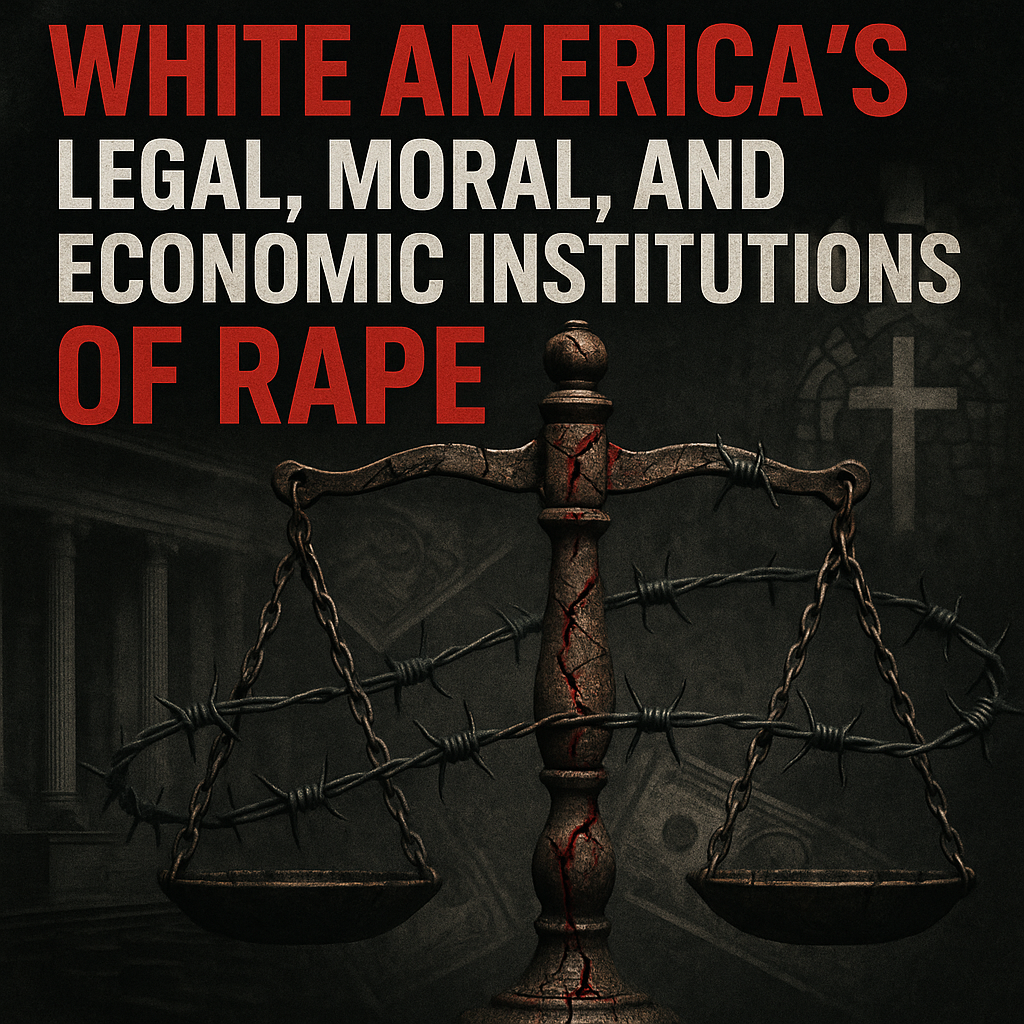
One of the most revealing historical examples discussed is the case of Elizabeth Key, a biracial woman born around 1630 to an enslaved Black woman (referred to as “Black Bessie”) and Thomas Key, a white colonist and member of the House of Burgesses in Virginia.
Initially, Thomas Key denied paternity but was later forced to acknowledge Elizabeth as his daughter through court testimony. Before his death in 1636, he indentured her to a neighbor until age 15, at which point she would be free. Key also made provisions for Elizabeth to be identified as Christian, which at that time was tied to freedom.
However, Elizabeth remained indentured for approximately ten years beyond when she should have been freed. Around 1655, with the help of her partner William Grinstead, she went to court seeking her freedom. The court initially ruled in her favor based on English common law, which held that the child of an English father was free.
When the plantation appealed, a higher court overturned the decision, disregarding the law of the time and ordering Elizabeth back into servitude. However, when the case went to the General Assembly, they ultimately decided in her favor, acknowledging the law and granting her freedom.
This victory threatened the slave system, and just six years later, in 1662, the law was changed to state: “All children born in this country shall be held bond or free only according to the condition of the mother.” This pivotal legal shift protected white men from responsibility for children they fathered with enslaved women while maintaining the system of hereditary enslavement.
The Intentional Dehumanization of Black Women and Children
The conversation delves into how this legal framework created a permission structure for the sexual exploitation of Black women. As King explains:
“By changing the parentage and saying, ‘We’re going to identify you, Black child, only by the position of your mother… it gives it sets up a permission structure whereby white men are both facilitated, enabled, and authorized to commit rapes against Black women incessantly.”
This systematized sexual violence was not merely tolerated but institutionalized. Matthews adds: “These are the original baby daddies,” highlighting how current behavioral patterns in Black communities aren’t spontaneous but have historical roots in white supremacist structures designed to destroy Black family units.
The discussion moves to the concept of “slave breeding,” where enslaved Black people were forced into reproductive roles for economic gain. King cites historical accounts of plantation “studs” or “bucks” and “breeding wenches” – terms that reflected the commodification of Black bodies and reproductive capacities.
“Peter Brown insisted that slave masters prized fast breeders,” King notes, explaining how enslaved women who produced many children were rewarded, creating a perverse incentive system that celebrated reproductive exploitation.
The Psychological Impact and Generational Trauma
A central theme of the conversation is how these historical traumas continue to affect Black communities today through epigenetics and intergenerational trauma.
“You are seeing epigenetics at work,” Matthews explains. “What does genetic memory look like? What does intergenerational trauma look like? What does historical trauma look like? Now you can make a connection between a cause and the effect.”
The discussion examines how these historical forces have shaped Black people’s sexuality, relationships, and self-concept:
“We have been socially engineered over generations to be this way,” Matthews asserts, explaining how behaviors that are often pathologized in Black communities are actually responses to historical trauma.
King shares his personal awakening to these realities: “I felt so inadequate because I had to wake up to the reality that I was living in a delusional state. I had never been offered any information that would compel me to want to search for an alternative understanding of my reality or the truth.”
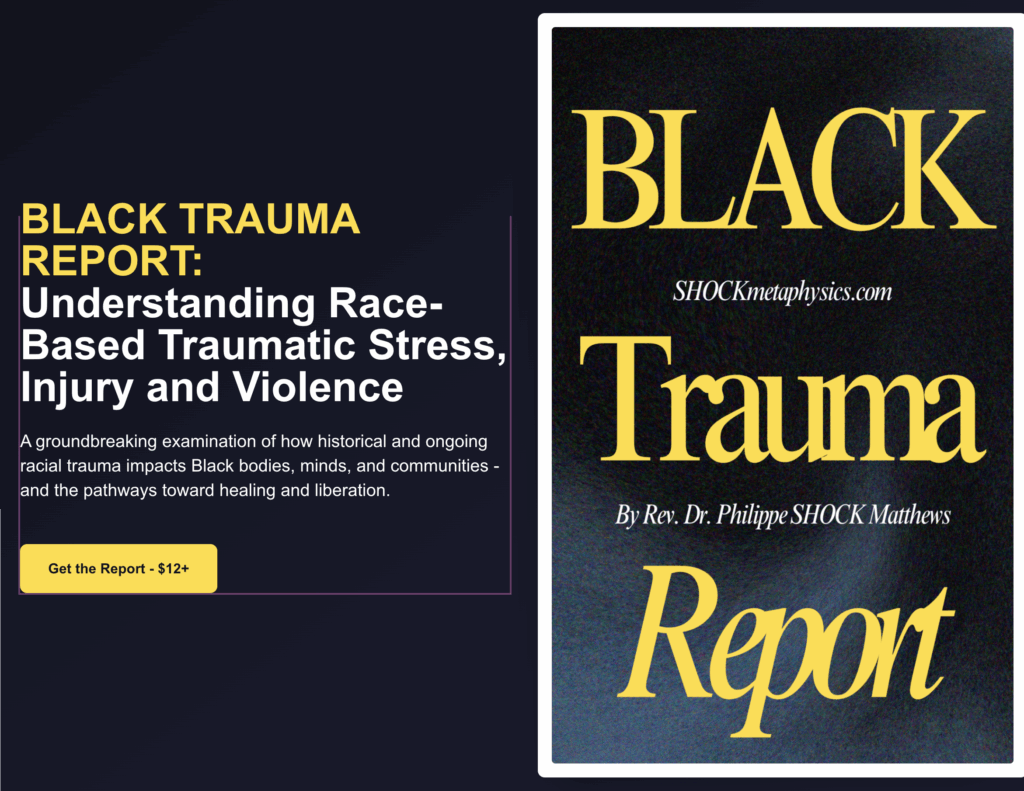
The Legal Protection of Sexual Violence
The conversation intensifies as King discusses how the legal system explicitly protected the sexual exploitation of Black women and girls. He references an 1859 Mississippi Supreme Court case, George v. State, where the court determined that a Black male slave who had raped a 9-year-old Black girl could not be sentenced to death for rape because the victim was Black.
“The court concluded that a male slave could only commit a rape upon a white woman,” King explains. The court’s reasoning was that “the crime of rape does not exist in this state between African slaves” because Black people were considered “overtly promiscuous.”
This reveals a pattern of what King calls “white projection” – white people projecting their own sexual proclivities onto Black bodies while simultaneously creating legal frameworks that facilitated their exploitation.
Cultural Appropriation and Identity
Matthews connects these historical patterns to contemporary challenges in Black communities, including the normalization of derogatory terms like “bitch,” “ho,” and the n-word in everyday language and popular culture.
“When did my mother, my auntie, my grandmother, my sister, when did they become bitches and hoes?” Matthews asks. “When did I become a nigga?”
King adds that these terms aren’t just words but represent political positions: “We’re talking about the politics of race, the politics of racism, and the politics of denigration… these terms represent those that you do not have to respect.”
The conversation also examines how the entertainment industry perpetuates these negative representations by incentivizing Black artists to use derogatory language and imagery:
“These white institutions and executives who occupy leadership roles within these white entertainment companies… require Black people many times to write these lyrics into their songs,” King observes, noting that this creates economic opportunities for individuals while collectively harming the community.
The Path to Healing: Self-Diagnosis
Perhaps the most potent part of the conversation focuses on the path forward. Both men emphasize the importance of self-diagnosis – examining one’s own thoughts, behaviors, and beliefs to understand how systems of oppression have shaped them.
“Nothing’s wrong with Black people. Something happened to Black people,” Matthews states emphatically. “That is fact. That’s scientific fact.”
King becomes emotional discussing this idea: “You just made me almost want to go to tears when you said so compassionately, ‘We have to diagnose ourselves,’ because that was my process… I had to start diagnosing myself.”
This self-diagnosis isn’t about self-blame but about understanding: “I don’t want you to self-blame and shame yourself either,” Matthews explains, “because, remember, nothing’s wrong with you. Something happened to you.”
Conclusion: Resources for Healing
The conversation concludes with King sharing resources for continuing this healing journey. He mentions his 10-part docuseries available on his website (danteking.com) and offers scholarships to his “Unlearning and Addressing Anti-Blackness” fellowship through his nonprofit, Black Academics.
Matthews underscores this healing work’s emotional difficulty but necessity: “Healing hurts. It’s just a natural thing. When you get a scrape, a scar, or a wound, the healing of that hurts.”
He offers a powerful closing metaphor: “Think of it that you have a cancer that is inside of you that is festering, that is only designed to kill you and keep you numb. And you are killing that cancer. This book, this work is the chemotherapy for your health, for your mental health, your spiritual health, and your emotional health.”
Through their profound discussion, Matthews and King provide an analysis of historical trauma and a roadmap toward healing through knowledge, community, and self-discovery.
For more information on Dante King’s work, visit danteking.com. His nonprofit, Black Academics, offers resources, educational opportunities, and community support for those seeking to understand and heal from historical traumas.
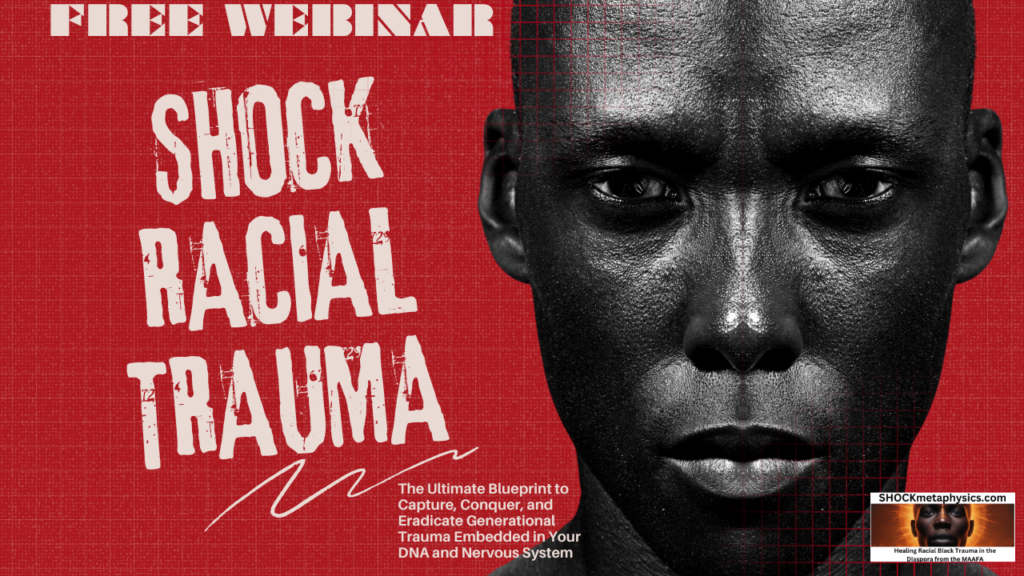
FREE SHOCK RACIAL TRAUMA WEBINAR: http://shocktraumafreewebinar.com
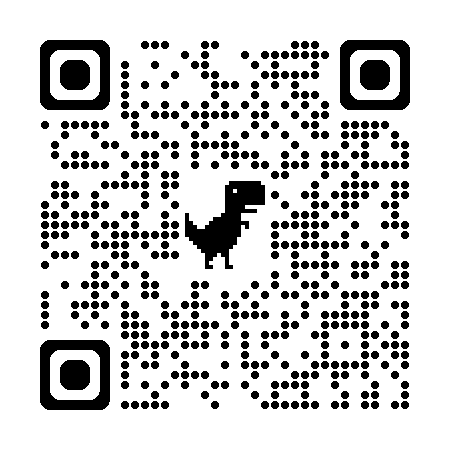
“I just completed a brief session with ChatGPT-Black Trauma. Wow! The responses I got were soooooo helpfu!.” — John Jackson (Patreon Member)
At BlackTraumaGPT.com, we aim to foster healing, understanding, and empowerment within Black communities by providing culturally sensitive education, insights, and mental health resources. We aim to deepen the collective awareness of Black trauma’s historical roots and its contemporary manifestations while guiding individuals and communities toward paths of self-care, resilience, and holistic healing. By leveraging the wisdom of Africana phenomenology and the expertise of Black scholars, we support the transformation of trauma into strength, encouraging collective growth and thriving.
IT’S TIME TO BREAK BLACK TRAUMA! Heal Thyself @ BlackTraumaGPT.com http://blacktraumagpt.com/ ASK THE QUESTION(S)!
———————
Get Social with Doc SHOCK:
PATREON | ABOUT DR. SHOCK | FLY SOLO | ACADEMIC BIO | BLOG | BLACK TRAUMA PODCAST | ENDORSEMENT | THREADS | IG | FB PAGE | PRIVATE GROUP | X | LINKEDIN | TIKTOK | PINTEREST | BLACK TRAUMA GPT | BLACK AI CONSORTIUM | BOOKS BY DOC SHOCK
